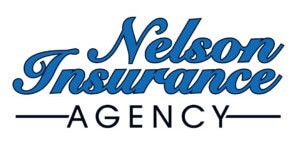 Congratulations on your decision to enter the trucking business! We appreciate your contribution to addressing the truck driver shortage, and we understand the allure of the open road, which can offer a fulfilling and lifelong career. To help you get started on the right foot, here are some key steps and considerations:
Congratulations on your decision to enter the trucking business! We appreciate your contribution to addressing the truck driver shortage, and we understand the allure of the open road, which can offer a fulfilling and lifelong career. To help you get started on the right foot, here are some key steps and considerations:
Step 1: Determine Your Business Classification and Name
Before you begin obtaining insurance quotes, it’s crucial to decide on the classification of your business. This involves choosing whether to register your business as an LLC, Partnership, Sole Proprietorship, or Corporation. The business classification you choose will need to be listed on your insurance policy. Additionally, you should select a name for your business and ensure its availability.
Step 2: Obtain Your Trucking Authority
Establishing your authority is a vital part of setting up your trucking business. Trucking authority refers to the permission granted by the government to receive payment for transporting freight. This step is of utmost importance. Several companies specialize in assisting individuals in obtaining their authority, so it’s advisable to seek their help. Start this process early, as it can take up to 7 weeks to complete.
Step 3: Register with the FMCSA and Obtain a USDOT Number
To operate a commercial vehicle that transports passengers or cargo across state lines, you must register with the Federal Motor Carrier Safety Administration (FMCSA) and obtain a USDOT number. These registrations are necessary to comply with regulatory requirements and ensure the safety of your operations.
Step 4: Secure Insurance Coverage
While some insurance carriers may hesitate to provide coverage for a new venture, we work with multiple carriers who are willing to take on the risk. Keep in mind that your lack of truck driving experience may limit your options, but as you gain more experience, additional insurance options will become available to you. Our agency can provide you with a quote within one business day, so allow us to assist you in getting started.
Our agents can guide you in choosing the appropriate coverage options for your business. Some essential coverage types include:
- Cargo Insurance: Provides coverage when you are held responsible for lost or damaged cargo due to fire, collision, or other incidents.
- Truck General Liability: Typically required for for-hire truckers, this coverage protects against liability claims arising from your trucking operations.
- Non-Trucking Liability: Covers your liability when using your vehicle for non-trucking activities, such as personal errands.
- Trailer Interchange: Offers physical damage coverage for the trailers you pull under a trailer interchange agreement.
- Physical Damage: Provides collision and comprehensive coverage for your truck in case of accidents, fire, theft, or vandalism.
Numerous other coverage options exist, and it’s important to tailor your policy to your specific needs. We recommend discussing your requirements with our truck insurance specialists to ensure you have the right coverage for your business.
We are dedicated to helping you establish your trucking career and hit the road with confidence. Please don’t hesitate to reach out to our agency for guidance and support. We look forward to assisting you every step of the way.

